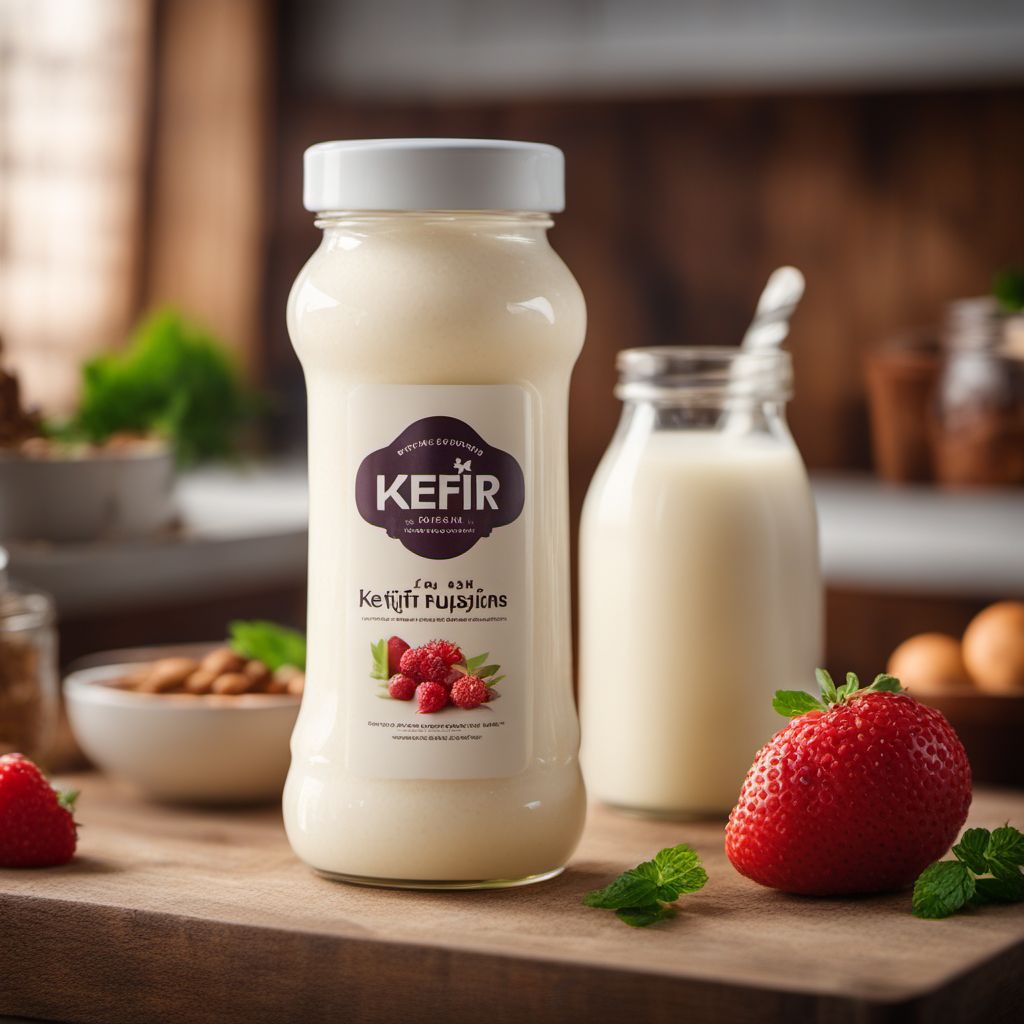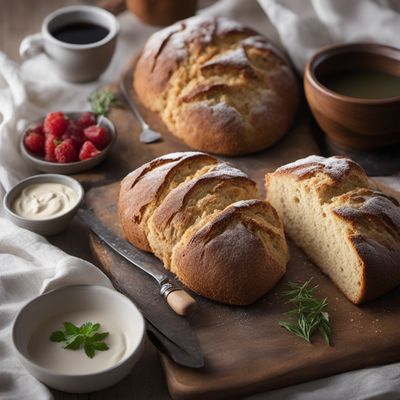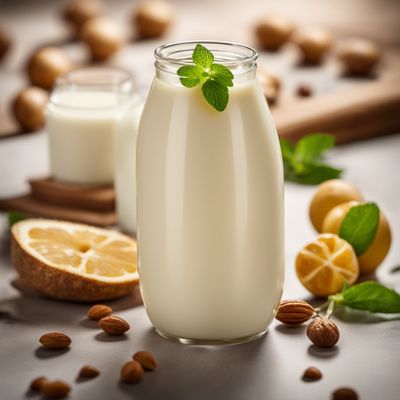
Ingredient
Kefir
The Probiotic Powerhouse
Kefir is a cultured milk drink that undergoes fermentation, resulting in a tangy and slightly effervescent beverage. It has a creamy consistency similar to yogurt and can be enjoyed on its own or used as an ingredient in smoothies, dressings, or baked goods.
Origins and history
Kefir has its roots in the Caucasus region, where it has been consumed for centuries. It is believed to have originated from the practice of fermenting milk in animal skin bags. Kefir gained popularity for its probiotic properties and has since spread to different parts of the world.
Nutritional information
Kefir is a good source of probiotics, calcium, and protein. It also contains vitamins B12 and K2, as well as various minerals. Its probiotic content supports gut health and digestion.
Allergens
Kefir is a dairy product and may contain lactose, making it unsuitable for individuals with lactose intolerance or dairy allergies. However, lactose-free kefir options are available.
How to select
When selecting kefir, choose varieties that are fresh and have a smooth consistency. Avoid products with any signs of mold or off-putting odors. Opt for organic or grass-fed options for a higher quality product.
Storage recommendations
To maintain the freshness and quality of kefir, store it in the refrigerator at a temperature between 32°F and 39°F (0°C and 4°C). Consume it within the recommended shelf life stated on the packaging.
How to produce
Kefir can be produced at home by fermenting milk with kefir grains, which are a combination of bacteria and yeast. With proper care and regular fermentation, kefir grains can be reused to produce kefir indefinitely.
Preparation tips
Kefir can be enjoyed on its own as a probiotic-rich beverage, blended into smoothies for added creaminess, used as a base for salad dressings, or incorporated into baked goods for a tangy twist.
Substitutions
Yogurt can be used as a substitute for kefir in most recipes, although the tangy flavor and effervescence may be slightly different. Buttermilk or sour cream can also be used as alternatives in certain dishes.
Culinary uses
Kefir is commonly used in smoothies, dressings, marinades, and baked goods. It adds a tangy flavor and creamy texture to these culinary creations.
Availability
Kefir is widely available in supermarkets, health food stores, and specialty dairy shops. It is commonly found in regions where dairy consumption is prevalent, such as Europe, North America, and parts of Asia.
More ingredients from this category
Recipes using Kefir

Refreshing Beet Soup
Beet Bliss: A Refreshing Twist on Polish Chłodnik

Latvian Beetroot Cold Soup
Refreshing Beetroot Delight: Latvian Aukstā Zupa

Mordovian Soda Bread Farl
Mordovian Magic: A Twist on Soda Bread Farl

Eddoes Choka with a Twist
Savory Eddoes Delight: A Modern Twist on Trinidadian Choka

Refreshing Summer Okroshka
Chilled Delight: A Twist on Traditional Russian Okroshka

